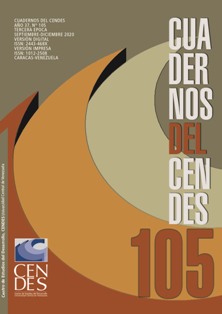Motivadores para el uso de Servicios de compartir vehículos bajo demanda en Brasil
Palabras clave:
Comportamiento del Consumidor, Economía Compartida, TecnologíaResumen
El propósito del estudio fue sondear los motivadores para su uso entre los que adoptan y los que no los medios de transporte bajo demanda en Brasil. Los procedimientos metodológicos incluyeron muestreo probabilístico y prueba preliminar para el diseño del instrumento de investigación y el análisis de los datos se utilizó el software IBM SPSS Statistics, haciendo uso del análisis de frecuencia factorial agregado por la correlación de Spearman y el Análisis Factorial Exploratorio. Los datos indicaron la existencia de catorce motivadores que involucran las dimensiones económica, social, ambiental y tecnológica, con énfasis en los elementos Tasa Reducida, Disponibilidad Tecnológica y Beneficios Esperados, que representan los principales motivadores de uso en la toma de decisiones del consumidor, corroborando con resultados de estudios internacionales. El estudio trajo avances en delinear los motivadores para el uso y categorizarlos en orden de importancia con especial atención al aspecto utilitarista de uso.
Abstract
The objective of the study was the survey of motivators for the use among those who adopt and those who do not adopt the means of transport on demand in Brazil. The methodological procedures included probabilistic sampling and preliminary testing for the design of the research instrument and the analysis of the data, the IBM SPSS Statistics software was used, making use of the factorial frequency analysis added by Spearman's correlation and Factorial Analysis. Exploratory. The data indicated the existence of fourteen motivators that involve the economic, social, environmental and technological dimensions, with emphasis on the elements Reduced Rate, Technological Availability and Expected Benefits, which represent the main motivators for use in consumer decision-making, corroborating with results of international studies. The study brought progress in delineating the motivators for use and categorizing them in order of importance with special attention to the utilitarian aspect of use.

